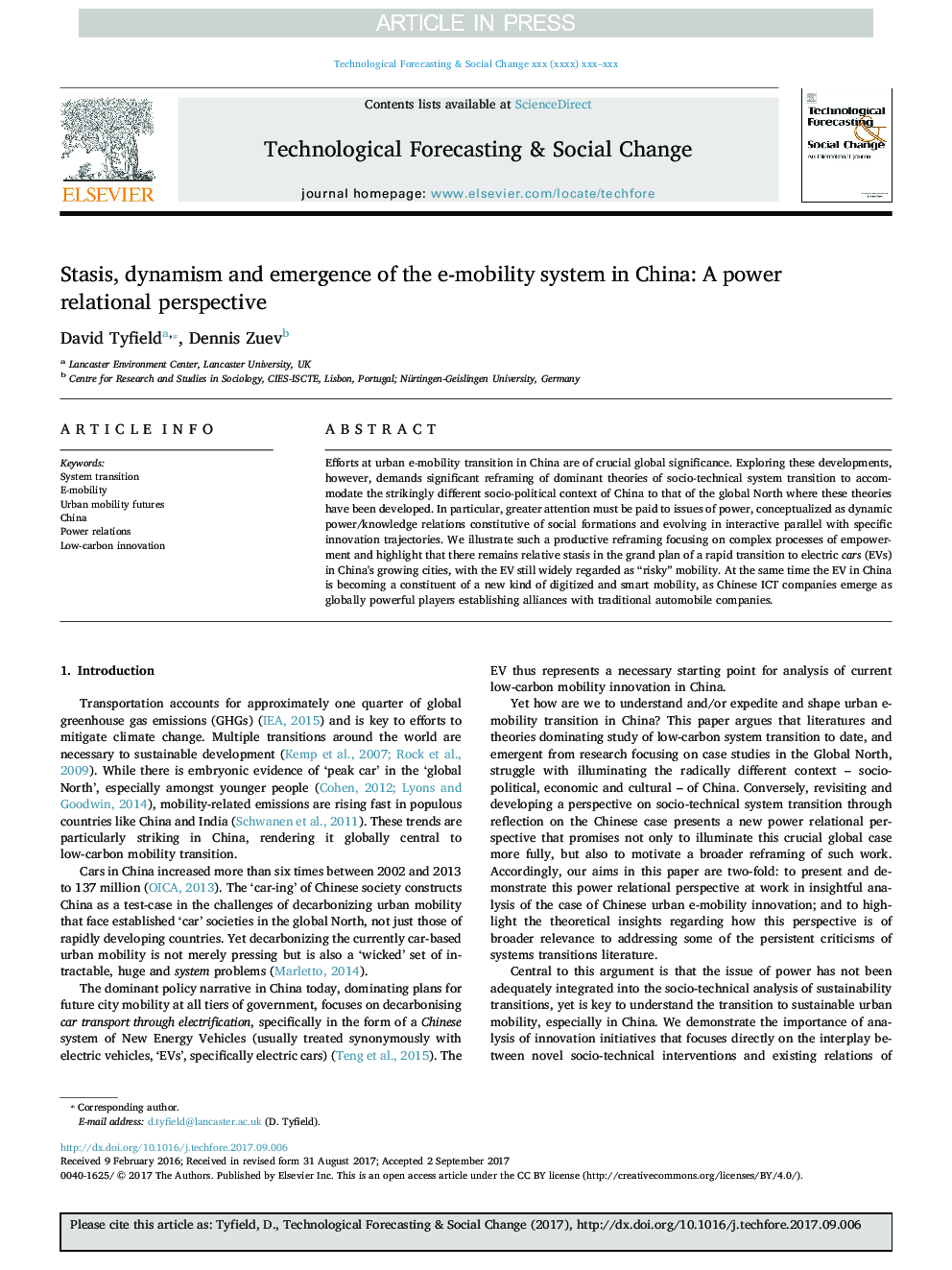| Article ID | Journal | Published Year | Pages | File Type |
|---|---|---|---|---|
| 7255898 | Technological Forecasting and Social Change | 2018 | 12 Pages |
Abstract
Efforts at urban e-mobility transition in China are of crucial global significance. Exploring these developments, however, demands significant reframing of dominant theories of socio-technical system transition to accommodate the strikingly different socio-political context of China to that of the global North where these theories have been developed. In particular, greater attention must be paid to issues of power, conceptualized as dynamic power/knowledge relations constitutive of social formations and evolving in interactive parallel with specific innovation trajectories. We illustrate such a productive reframing focusing on complex processes of empowerment and highlight that there remains relative stasis in the grand plan of a rapid transition to electric cars (EVs) in China's growing cities, with the EV still widely regarded as “risky” mobility. At the same time the EV in China is becoming a constituent of a new kind of digitized and smart mobility, as Chinese ICT companies emerge as globally powerful players establishing alliances with traditional automobile companies.
Keywords
Related Topics
Social Sciences and Humanities
Business, Management and Accounting
Business and International Management
Authors
David Tyfield, Dennis Zuev,
